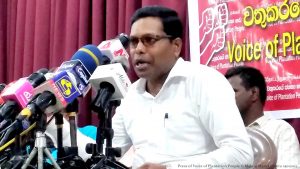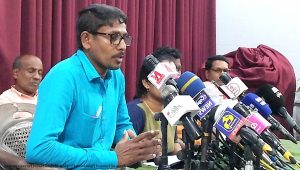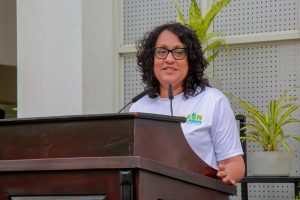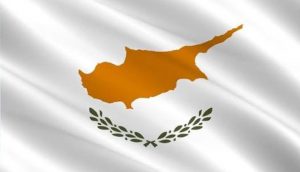Even the basic rights of the plantation people of Sri Lanka have not been fulfilled for 200 years

 Although the year 2023 marks 200 years since the plantation people or “Malayagam people” started making a big contribution to the economy of Sri Lanka, they have not received at least the basic rights to live as human beings in the society yet and they are living facing many social, economic, cultural and political problems. said the organization “Voice of Plantation People”.
Although the year 2023 marks 200 years since the plantation people or “Malayagam people” started making a big contribution to the economy of Sri Lanka, they have not received at least the basic rights to live as human beings in the society yet and they are living facing many social, economic, cultural and political problems. said the organization “Voice of Plantation People”.
Asking for real solutions to the basic problems that the plantation people are facing in this 200th anniversary year at least, the “Voice of Plantation People” organization handed over a written proposal to the president of Sri Lanka the 25th of January, said Anthony Jesudasan the president of the organization, said at the press conference held in Colombo 25th of January.
Anthony Jesudasan said that historical records show that these Tamil people, who have been contributing a lot of labor to the economic development of Sri Lanka for 200 years, were brought by foreigners from South India to install in the plantation industry in Sri Lanka in 1823.
Jesudasan the President of the “Voice of Plantation People” stated that there are problems with even their identity and pointed out that there is a crisis situation whether they should be addressed as Malayagam people or Tamil people of Indian origin or plantation people.
“It is questionable whether these Tamil workers, who have lived for 200 years and have been given their shoulders to the economy of this country, contributed to the national income of the country have been entitled to the rights enjoyed by other citizens living in the same country,” he said.
 “And that they have to be called a group of people who are living the most oppressive lives socially, politically, culturally, and economically in this country.” Anthony Jesudasan said to the media that was held at the Centre for Society and Religion (CSR) at Maradana.
“And that they have to be called a group of people who are living the most oppressive lives socially, politically, culturally, and economically in this country.” Anthony Jesudasan said to the media that was held at the Centre for Society and Religion (CSR) at Maradana.
It was pointed out that the citizens of Sri Lanka in general have the ability to enjoy administrative services, but still the plantation people have to live under the control of the plantation authority.
“They have to fulfill their daily activities through that. The plantation people have lost the same administrative rights enjoyed by the Citizens. They still live in line rooms under the estate authority. They don’t have a home of their own. They have no land of their own. But in 200 years labor is given to Sri Lanka’s economy and gross national income on a large scale.” Jesudasan added.
“The right of land and house is a basic right that the people of Malayagam should have as soon as possible.” He said.
According to Anthony Jesudasan’s explanation, he said that among the plantation workers living in Sri Lanka, the plantation people living in Galle and Matara Southern districts are a group living without any political leadership, so no attention is paid to them. And they have not been able to get any parliamentary representation or provincial council member positions so far.
Therefore, through this proposal, the crisis and needs of the plantation people living in the southern province have been brought to the attention of the President.
“After the landslide occurred in 2003, victims were given a plot of land in 07 Perches, but even though 18 years have passed, not even a small piece of paper has been given to victims for the right of that land.” speaking to the media, Anton Vanathaiah, secretary of the “Voice of Plantation People,” said.
 “those papers are not in the relevant government offices too,” he said.
“those papers are not in the relevant government offices too,” he said.
“There are 05 Tamil schools in Matara district. But, because those schools are in very difficult areas, parents cannot afford to send Tamil children that far due to economic problems. Therefore, they have to be sent to the nearest Sinhala school and they have to study Buddhism instead of Hinduism in Sinhala. We have to face a shortage of teachers for subjects like Mathematics and English Science. Because of this, the higher education of plantation Tamil children has been greatly affected,” explained Anton Vanathaiah at the press briefing.
By February 2023, it will be 200 years since the first generations of the Upcountry Tamil community arrived in Sri Lanka.






